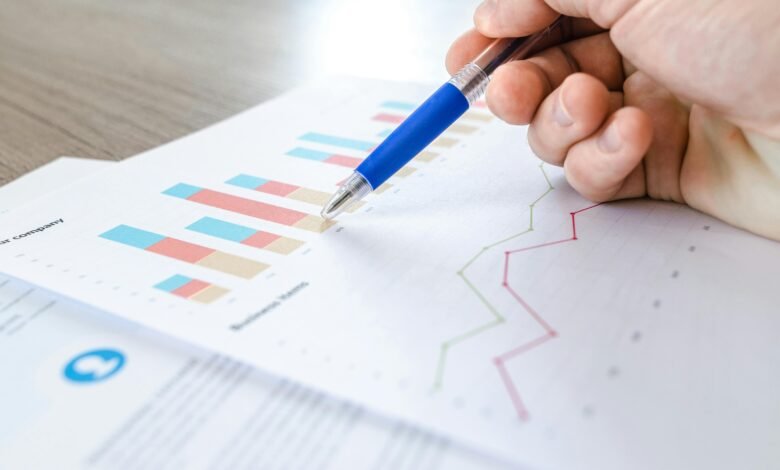
Inflation and How It Affects Your Spending Habits
Published 6:19 pm Saturday, June 21, 2025

Image source: https://images.pexels.com/photos/590022/pexels-photo-590022.jpeg?_gl=1*jt12cd*_ga*MTg3NTAwMTg2NS4xNzM5NDY4MzMx*_ga_8JE65Q40S6*czE3NTA1NDc0MjMkbzc0JGcxJHQxNzUwNTQ3ODk2JGo2MCRsMCRoMA..
Inflation, it’s something you hear about all the time, but what does it actually mean for your wallet? Basically, it’s when prices for goods and services go up over time, so your money doesn’t stretch as far as it used to. If your grocery bill feels bigger or your coffee costs more than it did last year, that’s inflation in action. But what causes it, and what does it mean for how you spend?
Let’s break it down.
Why Prices Keep Climbing
To understand inflation, it helps to know why prices rise in the first place. Sometimes, demand for certain items outpaces supply. For example, if everyone wants a specific product but there isn’t enough to go around, sellers can raise prices. Other times, inflation happens because it costs more to make those products in the first place. Rising wages, higher shipping expenses, or spikes in energy costs can all ripple down to the consumer.
You’ve probably heard experts talk about other factors, like global markets and the stock market. This is where questions like what are futures come into play. Futures are contracts to buy or sell assets at a set price on a future date. They help businesses manage costs and reduce financial risks, but can also impact the prices of goods like oil or food. These changes can drive inflation, affecting consumer spending.
Feeling the Squeeze on Everyday Spending
If your money doesn’t go as far as it used to, chances are inflation is the culprit. Day-to-day expenses like groceries, gas, and rent are usually the first to see price hikes, but long-term purchases like cars, homes, and education aren’t far behind. Because of this, inflation tends to hit certain groups harder than others. For instance, people living on fixed incomes, like retirees, often feel the pinch more than those whose salaries can adjust over time.
Take the example of eating out. Imagine you used to grab lunch at your favorite diner for $12, but now it’s closer to $15. You might start packing lunch more often or switching to cheaper options. Similarly, if gas prices skyrocket, you may rethink road trips or look for ways to carpool. These shifts in spending are direct responses to inflation, where we consciously (or unconsciously) alter our habits to make up for reduced purchasing power.
Adjusting Your Financial Habits
If inflation sounds a bit scary, don’t worry! There are strategies you can adopt to help soften its impact on your wallet. The key is to be proactive. Start by creating or revisiting your household budget to see where your money is going. Tracking your expenses can highlight areas where you can cut back or make smarter choices.
For example, if groceries are eating up a big chunk of your spending, consider buying in bulk, shopping generic brands, or planning meals around sales. If dining out has become noticeably pricier, look out for “kids eat free” nights or lunchtime deals. At the gas pump, apps that track the cheapest fuel options in your area can save you a few bucks.
Long-term planning can help, too. Inflation can be a great motivator to start building an emergency fund or setting up investments that grow over time. Stocks and mutual funds, while not foolproof, can outpace inflation and preserve your cash over the years. If you’re unsure where to start, consulting a financial advisor can give you some clarity.
Inflation and Big-Ticket Decisions
Inflation doesn’t just change how you spend on small, day-to-day things. It can also force you to rethink larger purchases. For example, if mortgage rates or housing prices rise faster than your income, you might decide to hold off on buying a home for a few years. Or maybe leasing a car becomes more appealing than financing one, since payments tend to be lower upfront.
One trend many people adopt during high inflation is delaying non-urgent purchases altogether, like upgrading a phone or buying new furniture. The idea here is to stretch the value of what you already own, whether that means repairing instead of replacing or borrowing instead of buying.
Staying Ahead of the Curve
We can’t entirely escape inflation, but being aware of its impact is the first step toward adapting. Small changes to your spending habits, like trimming unnecessary costs, shopping smarter, and budgeting carefully, can make a big difference over time.
It’s also worth remembering that inflation isn’t permanent. While prices going up is natural, they don’t rise forever. Economies adjust, and so can you. By staying mindful of your finances and planning ahead, you can ride out the wave without letting inflation completely upend your life.
Inflation can feel overwhelming, but it’s really just another opportunity to make intentional financial decisions. With a little foresight and flexibility, you’ll find ways to keep your spending habits balanced, even when prices climb.
Source link




